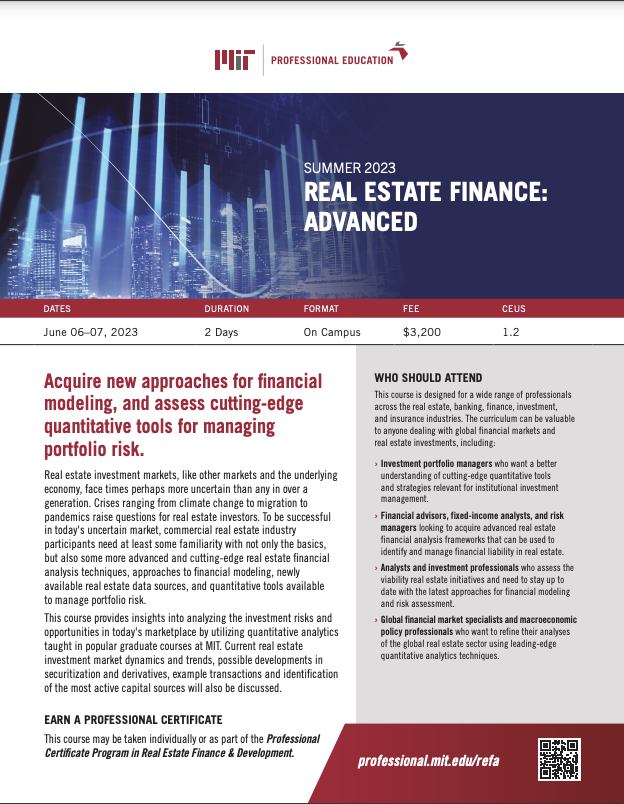Enhance your ability to analyze the financial risks and opportunities of today's real estate marketplace by leveraging quantitative analytics techniques taught in popular MIT graduate courses. Over the course of two accelerated days, you’ll master common real estate financial analysis methods, acquire new approaches for financial modeling, and assess cutting-edge quantitative tools for managing portfolio risk.
THIS COURSE MAY BE TAKEN INDIVIDUALLY OR AS PART OF THE PROFESSIONAL CERTIFICATE PROGRAM IN REAL ESTATE FINANCE & DEVELOPMENT.
The type of content you will learn in this course, whether it's a foundational understanding of the subject, the hottest trends and developments in the field, or suggested practical applications for industry.
How the course is taught, from traditional classroom lectures and riveting discussions to group projects to engaging and interactive simulations and exercises with your peers.
What level of expertise and familiarity the material in this course assumes you have. The greater the amount of introductory material taught in the course, the less you will need to be familiar with when you attend.




